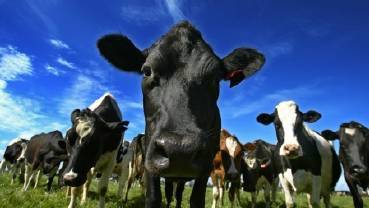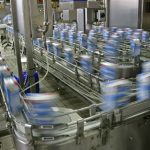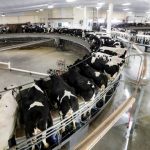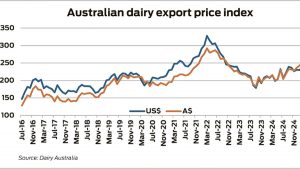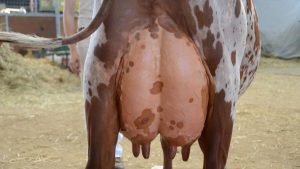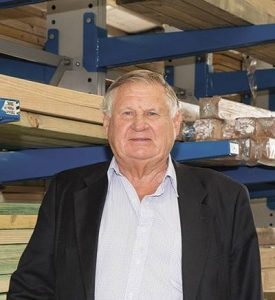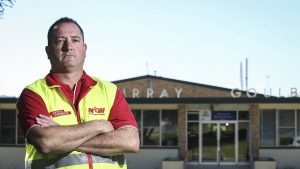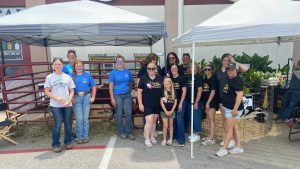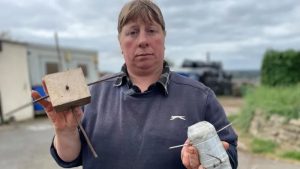
The sentiment of many dairy farmers is summed up by Farmer Power chief executive Garry Kerr.
“Processors’ first interest is their shareholders, not dairy farmers,” Mr Kerr said.
“A lot of the advocacy takes place against the processors.
“It’s like putting the fox in the hen house.
“How can you have processors part of an advocacy group for dairy farms? You just can’t.”
United Dairyfarmers of Victoria (UDV) president Paul Mumford said the concerns emerging in the week since the Joint Transition Team (JTT) model was released were widespread and consistent.
“I think the states are all roughly coming up with the same concerns – accountability, the processors in or out, and farmer-based board or skills-based board,” Mr Mumford said.
The day the JTT report was released, Australian Dairy Plan (ADP) independent chair John Brumby said it was clear farmers wanted to be represented together with processors in a single advocacy body.
At the ADP national workshop, which involved 130 selected participants, 60 per cent of them farmers, had voted on the issue.
Queensland Dairyfarmers’ Organisation (QDO) president Brian Tessmann said he felt the outcome of the national workshop had been badly misconstrued.
“I don’t think a lot of farmers thought they were voting for having processors involved in their advocacy,” Mr Tessmann said.
“They wanted processors involved in helping to fund the research and development that farmers and the government pay for.
“People were mostly complaining about the national bodies but the JTT’s solution seems to be to ‘get rid of all the other bodies and keep the national one’.”
Some farmers present at the workshop, including Bernie Free, Winslow, also disputed there was a clear outcome.
“There were three votes on that issue with the question being changed a little bit each time because people were unsure what they were really voting for,” Mr Free said.
“A lot of people in that room would say, ‘yes, we want processors and farmers to work together but when both sides have decided to come together on a specific issue, like a free trade agreement’.”
On Tuesday night, the UDV Wannon branch, of which Mr Free is vice president, passed resolutions asking for more time to make submissions regarding the ADP and JTT.
GRASS ROOTS ALTERNATIVE
Indeed, senior Wannon members have built their own alternative to the JTT model.
The heart of the model would have a new body dubbed ‘Dairy Farmers Australia’, responsible for advocacy as well as research and development.
Mr Free said processors would not be part of the body but that it would consult with them when needed.
“We agree that 10 or 20 per cent of the time we should be in bed with the processors, going hell for leather at somebody like the government about what is good for both sides of the dairy industry,” Mr Free said.
“The remaining 70, 80 or 90pc of the time, we should be absolutely flogging the processors because they’re doing the wrong thing.
“And if they’re in the same bed with us full-time, that cannot work.”
The Wannon UDV branch, QDO and Farmer Power all pointed to the development of the mandatory code as an example of when processors and farmers needed to advocate separately.
Mr Free said the Wannon group was in discussion with Farmer Power regarding the model and said it was possible that defections would follow.

ALTERNATIVE: The model proposed by senior members of the United Dairyfarmers of Victoria Wannon branch to reform advocacy for the Australian dairy industry.
Mr Kerr said Farmer Power was interested in the Wannon model.
“Farmer Power has been working with branches of the UDV in the western district,” Mr Kerr said.
“We have been working to form a consensus.
“We are awaiting some final details but, at the moment, all parties are working towards a good resolution, a strong resolution on behalf of all dairy farmers, to represent dairy farmers.”
Mr Tessmann was aware of the Wannon model, too.
“It’s a model which could be at least as useful as the JTT model,” he said.
Mr Mumford said the Wannon model had been presented to policy council but was something of a quandary for the UDV.
“We can’t come out and endorse it because it needs to have discussion by farmers and members around the state to see whether it’s got merit and whether it could get traction,” Mr Mumford said.
He had been reluctant to share the model earlier because the JTT needed space to make recommendations “without fear or favour”.
The need to consult with members regarding both the JTT and Wannon models would take time.
“I am not trying to protect my own patch or the national body but we cannot fail at this and we need the appropriate time to get this right,” Mr Mumford said.
“I understand the need for certainty and that we’ve got to be reasonably quick but two to three months, I think, is an appropriate period.”
The ADP extended the closing date for submissions on the draft of the main plan to March 3 but hasn’t said when submissions on the JTT element will close.
But, speaking last week when the advocacy report was released, JTT chair Shirley Harlock had a warning.
“All dairy leaders are going to have an obligation to get behind this,” she said.
“If they disagree, that’s fine, but come back with a constructive solution that can be worked in.
“Don’t stand there and say to me, ‘Well, everybody else has got to change but I’m staying where I am because mine’s the best or we work okay or this works for us’.
“Look at the big picture, boys.
“This is about the broader dairy industry as a whole and not just for now, but in the next five and 10 years.
“And it’ll be their attitude and the willingness for everyone to compromise a little to get it through.”
